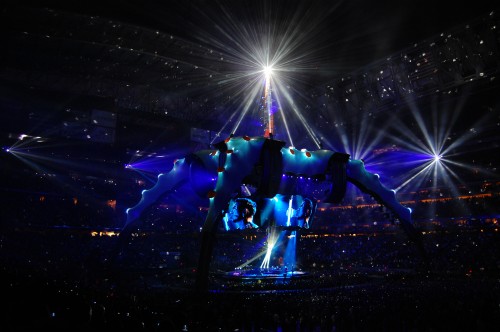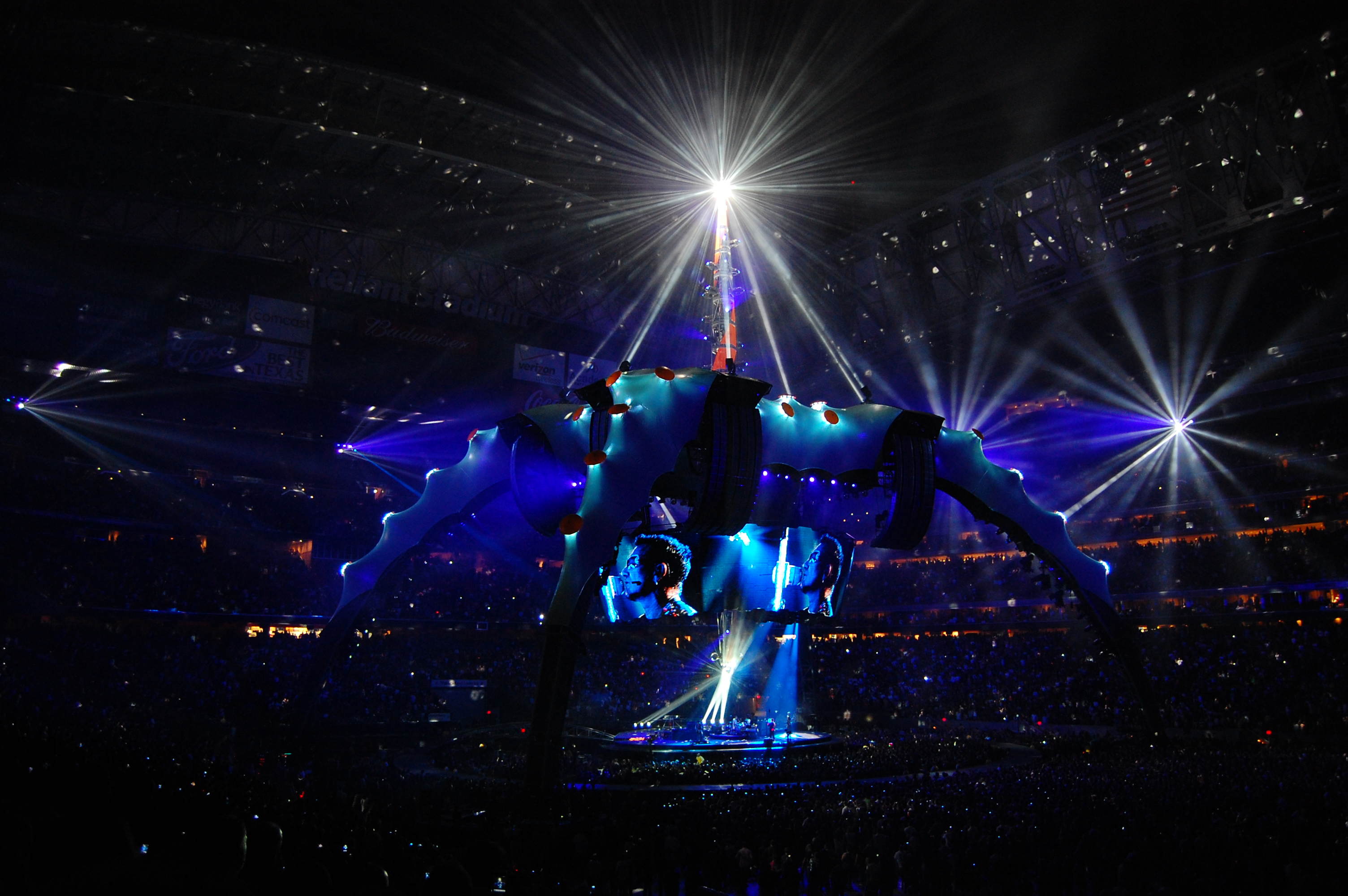
Bono rocked another sermon recently at Georgetown University – calling the students (and the rest of us) to action to alleviate the suffering in the world around us.
“I don’t know if this is a lectern or a pulpit,” Bono told the crowd, folding his arms on the wooden podium in front of him, “but I feel oddly comfortable. It’s a bit of a worry, isn’t it? So … welcome to Pop Culture Studies 101. Please take out your notebooks. Today we are going to discuss why rock stars should never, ever be given access to microphones at institutes of higher learning.
“You will receive no credit for taking this class,” Bono joked, “not even street cred — it’s too late for that. I will, of course, be dropping the occasional pop culture reference to give the impression that I know where your generation is at. I do not. I am not sure where I am at.”
I was really impacted when I heard Bono speak in Dallas several years ago — and this was no different.
And this latest sermon follows a great line of other sermons he’s given in recent years – spreading the Good News to those that have ears.
Early on, Bono took a few jabs at the recent presidential election and all the attack ads — but said he’d be happy to see attack ads on things that truly matter.
“I’d like to hear attack ads on things worth attacking. If there was an attack ad on malaria, I’d get that, because 3,000 people die every day — mostly kids — of malaria. Let’s have an attack ad on malaria. Let’s have an attack ad on mother-to-child transmission of HIV/AIDS. I’d get that.”
“Choose your enemies carefully because they define you,” he said — taking a line from U2’s song “Cedars of Lebanon”. “Make sure they’re interesting enough because trust me, you’re going to spend a lot of time in their company. So let’s pick a worthwhile enemy, shall we?”
I can dig that. What we choose to fight engulfs us. It fills our thoughts, our minds, our speech and our hearts. Imagine if we did truly find enemies worth giving that much attention to — instead of the friend on Facebook with different political views.
Bono explained to the audience, often with the cadence of a black preacher and a rock star, that the biggest issue today is extreme poverty — and thus it should become our biggest enemy.
He explained that the Arab Spring, Occupy Wall Street and the Tea Party were all signs of the pyramids of power wanting to be overturned — also making the connection between these recent movements and the Clash and punk rock.
Bono then made the case that the expected budget cuts in the US will hurt people all over — especially those already hurting the most.
“That slashing sound you hear is a big pair of scissors bearing down on the federal budget,” he said. “Cuts — they hurt. Somebody bleeds. The aid cut along would mean that nearly 275,000 people wouldn’t get the AIDS treatment they need, resulting in over 60,000 deaths. A quarter of a million more children will become AIDS orphans. Real people. Real bleeding. Cuts shouldn’t cost lives. Cuts shouldn’t cost the lives of the poorest of the poor. It shouldn’t be a hard case to make — but it is right now — in the halls of Congress, in the Senate, maybe even here in Gaston Hall,” he said choking back emotion.
“We must not let this economic recession become a moral recession. That would be double cruelty,” he added to the applause of the audience.
As he made the point earlier about our enemies, Bono let those in attendance, many college students who have likely become accustomed to easy online activism, that “one-dollar a day” or “one-minute of your time” wasn’t going to change the world. Changing the world would take far more.
“In truth, if you want to change the world right side up, it’s not going to take a minute, or an hour, or a day,” he said. “It’s going to take your whole life.”
Bono also touched on the importance of capitalism — alongside aid (something he said he’s recently come to realize in his work), noting that aid alone won’t solve the world’s issues.
“It is the nerds, the innovators, the programmers who are changing the world,” he explained. “Not only here in America but even more in places like Africa. Which is more mobile than we are. Africa is the second largest market after Asia. This is the era of the Afro-nerd. And these Afro-nerds are up to upending the pyramid.”
Bono explained how technology and social media have turbo-charged activism by breaking down the walls of corruption and throwing transparency into the mix — even on rock stars vacationing with their family.
“This is a right wrong issue,” he explained. “And America has constantly been on the side of right. Because when it comes down to it, this is about keeping faith in the idea of America… the idea that you and me are created equal… Those people I’ve been talking about today — the poor — they’re not ‘those people,’ they’re not ‘them.’ They’re us. They’re you. They dream as you dream. They value what you value. There is no them, only us. The American anthem is not exceptionalism, it’s universalism. There is no them. Only us. Ubuntu. ‘I am because we are.’ There is no them. Only us.”
(If you’ve read this blog for an extended period of time, you know I’m a fan of Ubuntu.)
Towards the end of his sermon, Bono spoke of St. Ignatius of Loyola.
“St. Ignatius, he was a soldier. He was lying on a bed recovering from his wounds when he had what they call a conversion of the heart. He saw God’s work and the call to do God’s work. Not just in the church, in everything, everywhere. The arts, universities, the Orient, the New World. And once he knew about that, he couldn’t unknow it. It changed him. It forced him out of bed and into the world. And that’s what I’m hoping happens here in Georgetown with you. Because when you truly accept that those children in some far off place in the global village have the same value as you — in God’s eyes or even just in your eyes — then your life is forever changed. You see something that you can’t unsee.”
Or as William Willberforce said, “You may choose to look the other way but you can never again say you did not know.”
In closing, Bono quoted Wael Ghonim, who launched a Facebook group that spurred the uprising in Egypt last year.:
“We’re going to win because we don’t understand politics. We’re going to win because we don’t play their dirty games. We’re going to win because we don’t have an agenda. We’re going to win because the tears that comes from our eyes actually come from our hearts. We’re going to win because we have dreams. We’re going to win because we are willing to stand up for our dreams. We’re going to win because the power of the people is so much stronger than the people in power.”
You can view the entire message below or read a great summary from Sojourners.
(Bono begins at 14:19)
